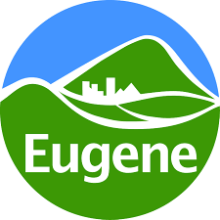Eugene Encouraged: Expanding Fiber Project
For the past year, Eugene has worked on a pilot project to bring high-quality connectivity to businesses in its downtown core. Now that community leaders and businesses have seen how a publicly owned network can help revitalize the city’s commercial center, they want to expand it.
The Proof Is In The Pilot
The project is a collaboration between the city of Eugene, the Lane Council of Governments (LCOG), and the Eugene Water and Electric Board (EWEB). As we reported last year, each entity contributed to the project. EWEB owns the infrastructure and uses its electrical conduit for fiber-optic cable, reducing the cost of deployment. EWEB also has the expertise to complete the installation, as well as manage and operate the infrastructure. They lease dark fiber to private Internet service providers (ISPs) to encourage competition over the shared public infrastructure.
The pilot project brought Gigabit (1,000 Megabits per second) connectivity to four buildings in the pilot area. Vacancy rate for those four building is at zero while typical vacancy rate in Eugene is 12 percent. Matt Sayre of the Technology Association of Oregon (TAO) notes that speeds in one of the buildings, the Broadway Commerce Center, increased by 567 250 percent while costs dropped by 60 40 percent. TAO joined the other pilot project partners in 2015.
The Search For Funding
The expanded project will cost approximately $4 million to complete. In June, the City Council approved a measure to make the project eligible for Urban Renewal Funds. Urban Renewal is another label for what is also known as Tax Increment Financing (TIF), which has been used in other places for fiber infrastructure. Bozeman, Montana; Valparaiso, Indiana; and Rockport, Maine, all used Urban Renewal or TIF to help finance their builds.



